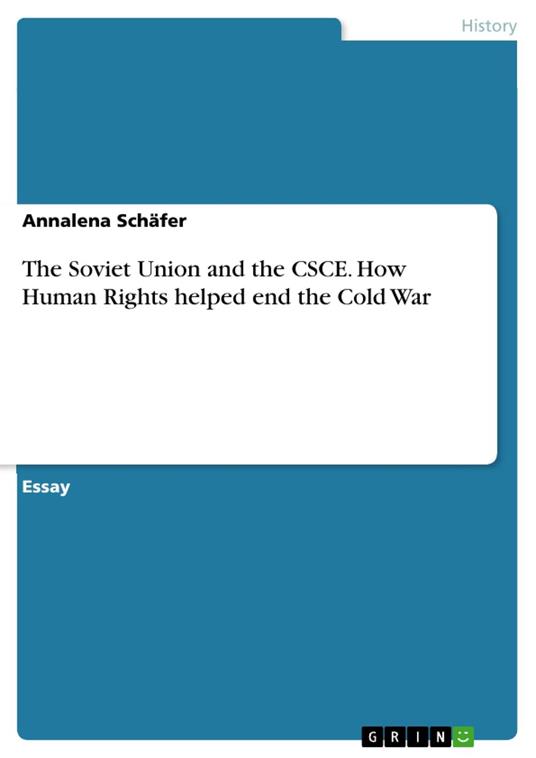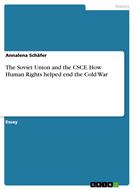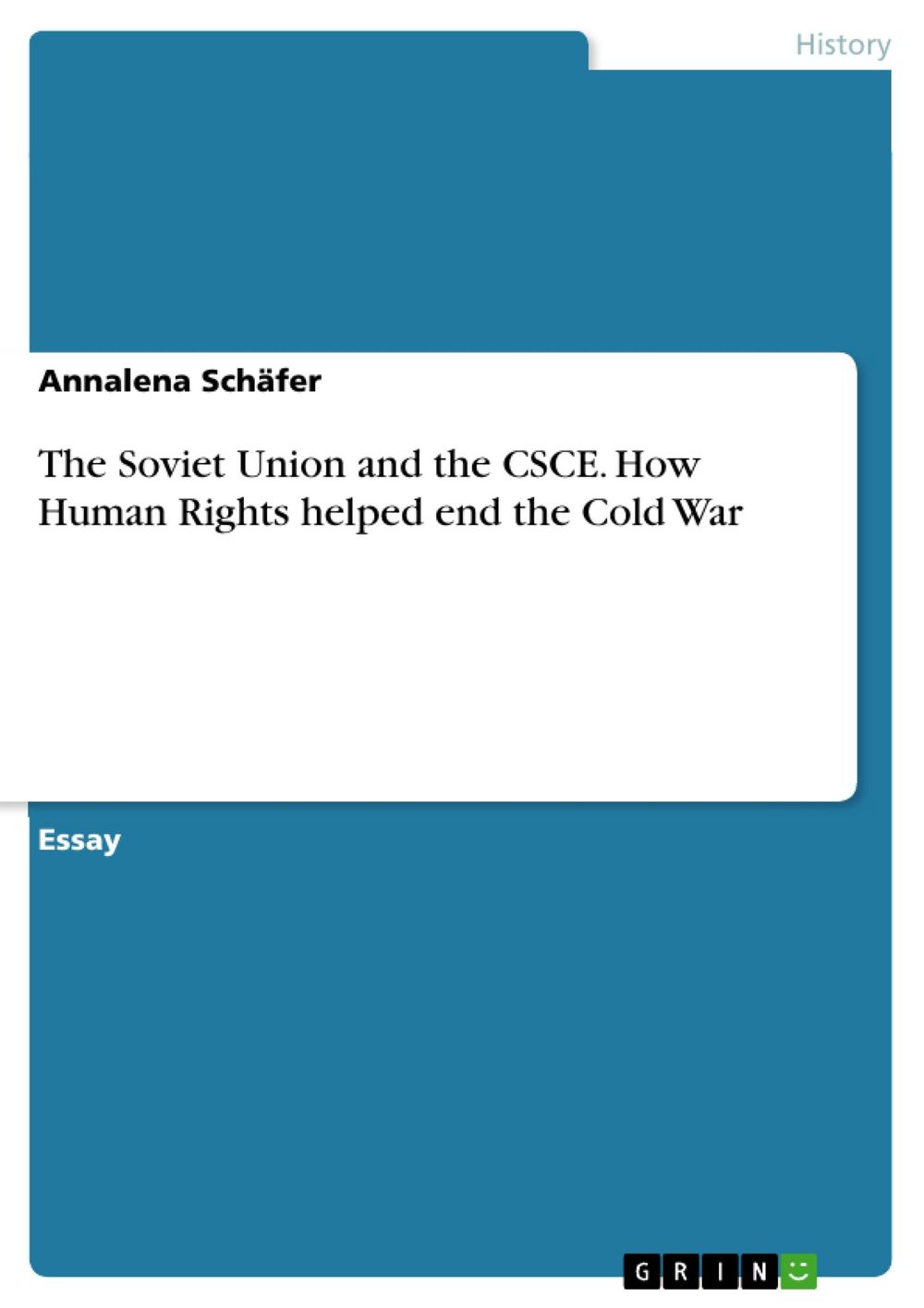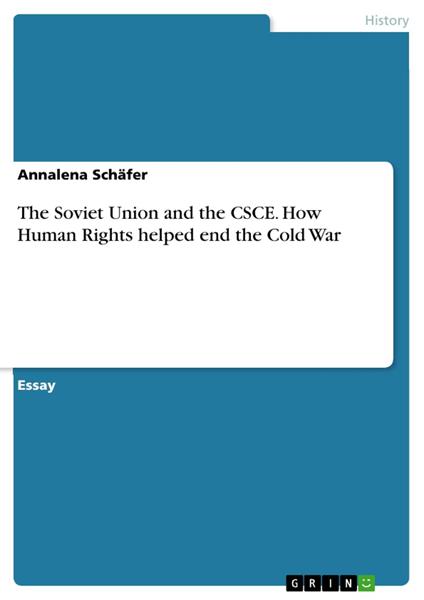The Soviet Union and the CSCE. How Human Rights helped end the Cold War
Essay from the year 2013 in the subject World History - Modern History, grade: 1,7, University of Siegen (Neue Geschichte), course: Human Right as Political Argument after World War II, language: English, abstract: This essay will deal with the question of wether and how the concept of human rights has led to changes in Soviet policies and to the end of the „Cold War“. A special focus will be on the work of the CSCE (Commission on Security and Cooperation in Europea) and non-governmental groups (further revered to as NGOs). After World War II, national leaders had learned that international regimes were not just a domestic matter but could themselves become a menace to world peace. Although, while many human rights are, as Louise Shelley has pointed out, a Western concept and not encouraged or institutionalized by many non-Western countries, these countries were signatories to the United Nations´ convention on human rights. Still their political and social cultures did not conform to many of the provisions expressed in it. This issue of human rights, as it has emerged mainly out of the ideas of the Enlightenment, still remained alien to many of the world´s nations after the War. As has been pointed out by distinguished historians and as Shelley mentioned, Russia remained 'outside' the Enlightenment. The Soviet Union is the heir of the Russian legal tradition, a culture in which individual rights were consistently subordinated to the state. It is also important to note that Russia was, as Shelley said, never directly exposed to the ideas of the Enlightenment, although some of its values were transmitted via the czars. Most important to know is that Human rights cannot be imposed on a society. Institutions that foster and nurture human rights must develop in a society itself. This is a gradual process. In societies without such a tradition it is unnatural to expect that such a transformation can occur in the face of a different historical legacy and in the face of other pressing economic and political problems. Knowing this, the following paper will show how NGOs and Soviet national leaders have tried to establish Human Rights in the USSR and what role the CSCE played in that process.
-
Autore:
-
Anno edizione:2016
-
Editore:
-
Formato:
-
Lingua:Inglese
Formato:
Gli eBook venduti da Feltrinelli.it sono in formato ePub e possono essere protetti da Adobe DRM. In caso di download di un file protetto da DRM si otterrà un file in formato .acs, (Adobe Content Server Message), che dovrà essere aperto tramite Adobe Digital Editions e autorizzato tramite un account Adobe, prima di poter essere letto su pc o trasferito su dispositivi compatibili.
Cloud:
Gli eBook venduti da Feltrinelli.it sono sincronizzati automaticamente su tutti i client di lettura Kobo successivamente all’acquisto. Grazie al Cloud Kobo i progressi di lettura, le note, le evidenziazioni vengono salvati e sincronizzati automaticamente su tutti i dispositivi e le APP di lettura Kobo utilizzati per la lettura.
Clicca qui per sapere come scaricare gli ebook utilizzando un pc con sistema operativo Windows



